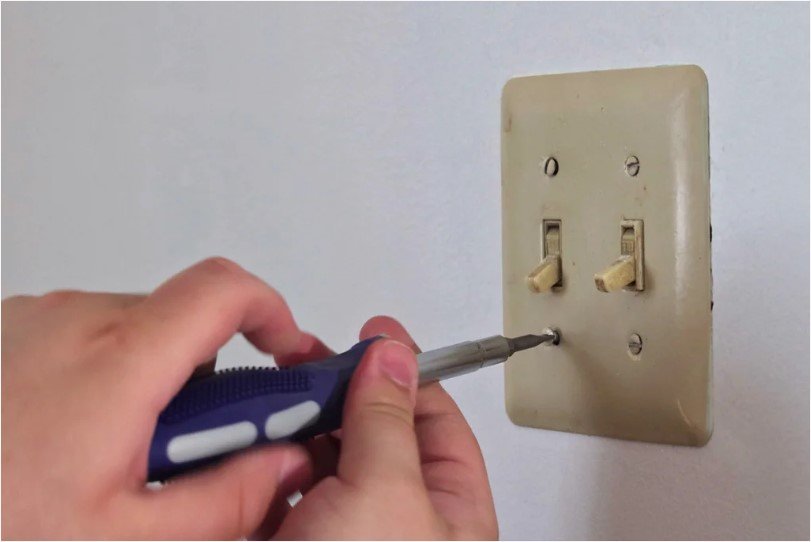In our modern, technology-driven world, electrical installations are essential for both homes and businesses. Among the key components of any electrical system are power sockets and modular switch sockets. These devices play a crucial role in how we interact with our electrical systems, providing the necessary interfaces for powering our devices and managing our electrical supply. In this blog, we’ll explore what power sockets and modular switch sockets are, their differences, applications, and considerations for choosing the right type for your needs.
What is a Power Socket?
A power socket, commonly known as an electrical outlet, is a fixed point in a wall or floor where electrical devices can be plugged in to receive power. These sockets come in various types depending on the country and application, ranging from simple two-pin sockets for smaller devices to three-pin sockets for heavier appliances.
Power sockets are designed to safely connect electrical devices to the power supply. They usually consist of a housing that contains electrical contacts and a cover that protects users from accidental contact with live parts. Most homes feature multiple power sockets in various rooms, making it convenient to connect appliances, chargers, and other devices.
Types of Power Sockets
- Type A: Commonly used in North America, this socket has two flat parallel pins and is suitable for devices that require lower voltage.
- Type B: Similar to Type A but includes a third round pin for grounding, providing additional safety for appliances.
- Type C: This socket features two round pins and is widely used across Europe and other regions.
- Type D: Predominantly found in India and some African countries, it has three round pins in a triangular configuration.
What is a Modular Switch Socket?
A modular switch socket is a type of electrical outlet designed to accommodate various modular components, including power sockets, data sockets, and multimedia ports. These sockets are versatile and customizable, allowing users to configure their electrical systems according to their specific needs.
The term “modular” refers to the ability to interchange different types of sockets and switches within the same framework. This flexibility means you can combine multiple functions in one panel, such as combining power outlets with USB ports or data sockets for internet connectivity.
Features of Modular Switch Sockets
- Customizability: Users can choose different modules according to their requirements, making modular switch sockets adaptable to changing technology and needs.
- Aesthetic Appeal: Modular switch sockets often come in various designs and finishes, allowing them to blend seamlessly with modern interior decor.
- Ease of Installation: These sockets are designed for simple installation and can often be replaced or upgraded without significant rewiring.
Key Differences Between Power Sockets and Modular Switch Sockets
While both power sockets and modular switch sockets serve the purpose of providing electrical connectivity, there are several key differences between the two.
Functionality
Power sockets are typically limited to providing electrical power to devices. They do not accommodate any additional functionalities. On the other hand, modular switch sockets offer more versatility, allowing users to add multiple functions, such as data transfer or multimedia connectivity.
Design and Installation
Power sockets usually have a fixed design and are installed according to standard electrical codes. In contrast, modular switch sockets come with a framework that can be customized and reconfigured as needed, making them ideal for environments where flexibility is crucial, such as offices or modern homes.
Aesthetics
Power sockets often follow a utilitarian design, while modular switch sockets are available in various colors and finishes, enhancing the overall look of a room. Homeowners can select styles that complement their interior design.
Applications of Power Socket and Modular Switch Socket
Home Use
In residential settings, power sockets are essential for everyday appliances such as refrigerators, televisions, and computers. Modular switch sockets are increasingly popular in homes, allowing homeowners to create a tailored electrical setup that meets their needs. For instance, a modular setup in a living room can include power sockets, USB charging ports, and data connections, all in one unit.
Office Environments
In modern office spaces, the use of modular switch sockets is particularly advantageous. Businesses often require multiple connections for computers, printers, and other office equipment. A modular switch socket system allows for easy reconfiguration as office layouts change, ensuring that power is always accessible where it’s needed most.
Commercial Spaces
In commercial settings, the need for versatility and functionality is paramount. Modular switch sockets can be installed in conference rooms, reception areas, and workstations to provide convenient access to power and data connections. This flexibility ensures that businesses can adapt to new technologies and changing operational needs without extensive rewiring.
Choosing the Right Socket for Your Needs
When selecting between a power socket and a modular switch socket, several factors should be considered:
- Usage Requirements: Assess the devices you intend to connect. If you need simple power access, standard power sockets may suffice. For more complex needs, such as combining power with data or multimedia, modular switch sockets are ideal.
- Aesthetic Considerations: Think about how the sockets will fit into your overall design scheme. Modular switch sockets often offer more design options, allowing for greater integration with your decor.
- Future Flexibility: Consider how your needs may change over time. Modular switch sockets provide the flexibility to adapt to new technologies or layout changes, making them a smart investment for both homes and businesses.
- Brand Quality: Opt for reputable brands known for quality and reliability. Schneider Electric is a trusted name in the industry, offering a range of power sockets and modular switch sockets that meet international standards.
Conclusion
In conclusion, understanding the differences between power sockets and modular switch sockets is essential for making informed decisions about your electrical installations. Power sockets serve as the basic interface for connecting devices, while modular switch sockets offer versatility and customization for various applications.Whether you’re outfitting your home, office, or commercial space, selecting the right socket can enhance functionality and aesthetics. Consider your specific needs, future flexibility, and the quality of the products you choose. For high-quality power sockets and modular switch sockets, check out the Schneider Electric eShop, where you can find a wide range of reliable electrical solutions to meet your needs. Embrace the power of modern electrical installations and transform your space with the right sockets today!









